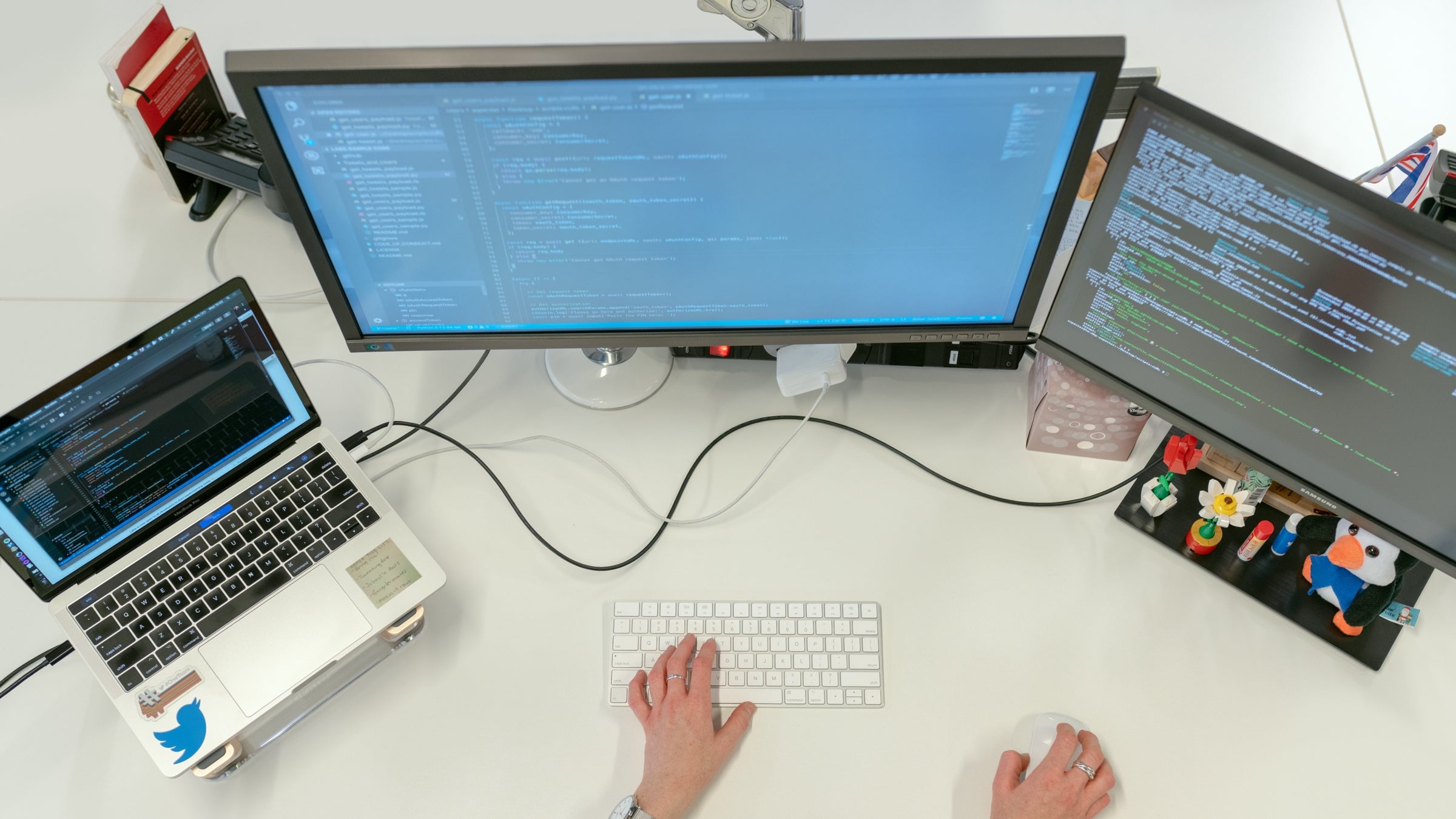Building Success with a Dedicated Development Team for Your Service Requirements
Wiki Article
Dedicated Developers vs. In-House Teams: Which Is Right for You?
The choice between making use of specialized designers and keeping an internal group is a considerable one that can affect the trajectory of your projects and overall organization technique. Devoted developers supply a degree of adaptability and specialized expertise that can be helpful for details, short-term campaigns. Alternatively, internal groups add to a natural company society and a nuanced understanding of long-lasting objectives. By taking a look at crucial variables such as budget plan, task scope, and wanted control, you can much better identify which strategy aligns with your business requirements. The ramifications of this choice extend beyond prompt results-- consider the wider influence on your service landscape.Understanding Devoted Designers
The growing need for specialized abilities in the technology market has resulted in the appearance of committed designers as a sensible solution for many organizations. These experts are typically contracted on a project basis, permitting firms to take advantage of details knowledge without the long-lasting dedication connected with full-time hires. Devoted designers are commonly ingrained within a client's group, supplying versatility and scalability to meet project demands.This design enables organizations to access an international skill pool, which is especially beneficial in a rapidly evolving technical landscape. Committed designers can be sourced from various geographical locations, ensuring that business can find the appropriate capability at affordable prices. They frequently bring a wealth of experience and knowledge, having actually worked on varied projects across various sectors.
In addition, specialized designers can concentrate solely on the tasks handy, boosting productivity and performance. They are equipped to incorporate seamlessly right into existing operations, collaborating very closely with in-house teams to attain project objectives. This method not just reduces the burden of employment and training however also allows organizations to remain dexterous, adjusting swiftly to altering market demands and technological innovations.
Benefits of In-House Teams

Additionally, internal teams have a tendency to have a deeper understanding of the company's mission, worths, and goals. This positioning can improve employee engagement and inspiration, as team participants feel extra attached to their job and the organization's success. Furthermore, having a committed in-house team enables much better placement of strategies and purposes, as these participants are consistently concentrated on the company's concerns.
In-house teams additionally help with quicker decision-making procedures, as they can react a lot more swiftly to obstacles and adjustments. The recognized partnerships and experience with business methods permit streamlined operations and decreased miscommunication. Inevitably, the combination of a cohesive culture, alignment with business objectives, and reliable interaction makes in-house groups a beneficial property for many companies, particularly those wanting to grow long-lasting development and advancement.
Expense Considerations
When assessing cost factors to consider, both devoted developers and internal groups present distinct financial effects for organizations. Engaging dedicated programmers usually involves a pay-per-project or per hour price design, which can be cost-efficient for companies with rising and fall task needs. This strategy enables for flexibility in scaling sources up or down, ensuring that firms just spend for the services they need.In contrast, internal teams require dealt with expenses, including wages, advantages, and overhead costs such as workplace area and devices. While this model supplies better control and instant schedule of resources, it might lead to higher lasting expenses, especially if the work does not warrant a permanent team.
Moreover, business must think about the surprise costs connected with employment and training of in-house employees, which can further strain budget plans. In some instances, the moment and sources spent on handling an in-house team can take away from the organization's core company goals.

Task Monitoring and Adaptability
Task monitoring and versatility are vital elements that influence the choice between in-house teams and dedicated developers. Dedicated groups typically have established processes for managing tasks successfully, leveraging details techniques like Agile or Scrum, which help with repetitive progression and versatility.
Eventually, the selection between dedicated developers and in-house groups hinges on the desired degree of flexibility and the certain task administration needs. Firms need to examine their operational characteristics, task intricacy, and resource accessibility to establish which alternative lines up finest with their tactical goals.
Making the Right Option
Selecting the best development strategy-- committed programmers or in-house groups-- needs a careful assessment of numerous elements that straighten with a company's critical objectives. software development partner. Think about the nature of the task. If it demands specialized abilities or a fast scale-up, committed designers may be preferable. Alternatively, in-house groups can give much better connection and integration with existing workers.Following, examine your budget plan. Devoted developers usually present a cost-effective option for short-term jobs, while in-house groups may incur higher long-lasting costs as a result of wages, benefits, and overhead expenses. Examine the degree of control and collaboration preferred; internal groups generally promote more powerful interaction and alignment with company culture.
Furthermore, think about the time structure. If prompt outcomes are needed, specialized programmers can be onboarded swiftly, whereas constructing an internal group takes some time for recruitment and training. Lastly, weigh the long-term vision of your organization. If constant advancement is important, investing in an in-house team may yield far better returns with time. Inevitably, the decision rests on a comprehensive analysis of these variables, making sure positioning with your company's total goals and operational demands.
Conclusion
Finally, the decision in between devoted programmers and in-house groups hinges on job requirements and organizational objectives. Committed designers provide versatility and customized know-how, making them suitable for short-term campaigns. Conversely, internal groups cultivate a cohesive society and deeper positioning with lasting goals. Cautious analysis of budget constraints, job timelines, and wanted control levels is important for determining the most ideal technique, guaranteeing positioning with software development staff augmentation calculated top priorities and operational performance.The choice in between utilizing dedicated developers and preserving an internal group is a considerable one that can influence the trajectory of your jobs and overall organization approach.Task administration and adaptability are essential aspects that affect the selection in between in-house teams and dedicated developers. offshore software development.In comparison, internal groups may excel in maintaining a consistent project management structure due to their experience with the organization's culture and long-term objectives. Committed programmers commonly present an affordable service for temporary jobs, while in-house teams might sustain greater lasting costs due to salaries, advantages, and expenses expenses.In conclusion, the choice between in-house teams and committed programmers hinges on job requirements and business goals
Report this wiki page